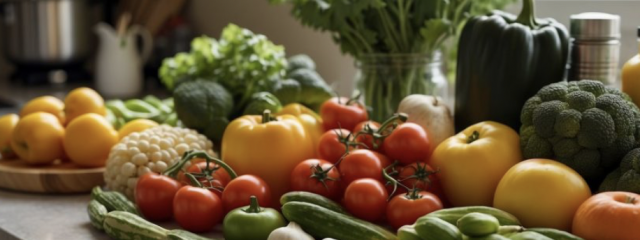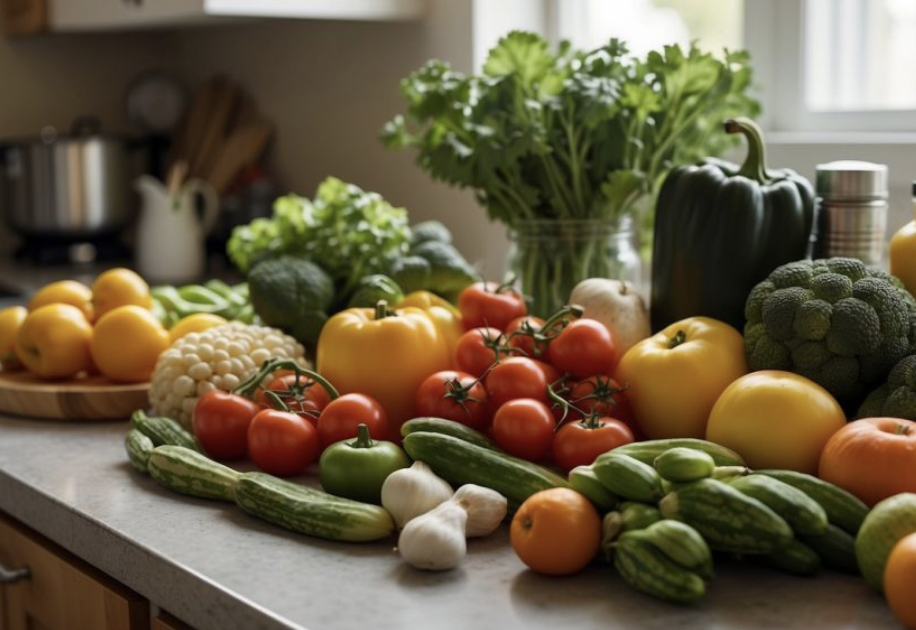Embracing Sustainability in the Kitchen: A Guide to Sustainable Cooking

By Joy Skipper
Registered Nutritional Therapist
In recent years, the concept of sustainability has become increasingly prominent in various aspects of our lives, including the way we eat. As we strive to minimize our impact on the environment, one area where we can make a significant difference is in the kitchen.
Sustainable cooking involves not only choosing environmentally friendly ingredients but also adopting practices that reduce waste and conserve resources. Here are some tips to help you embrace sustainability in your cooking and eating:
Choose Local and Seasonal Ingredients
Opting for locally sourced and seasonal ingredients is one of the easiest ways to reduce your carbon footprint. By supporting local farmers and producers, you not only reduce the emissions associated with transportation but also promote biodiversity in your region, and enjoy better tasting food.
Reduce Food Waste
Food waste is a significant issue worldwide, with vast amounts of perfectly edible food ending up in landfills each year. Combat this by planning your meals carefully, not buying extras that you don’t need, using leftovers creatively, and composting food scraps. You can also consider preserving excess produce through methods like freezing, pickling, or canning.
Mindful Meat Consumption
While meat can be a delicious and nutritious part of a meal, its production can have a significant environmental impact. Consider reducing your meat consumption or opting for sustainably sourced options such as grass-fed beef or pasture-raised poultry. Find local farms that can supply amazing meat directly to you – support the people who are providing us with food. You can also explore plant-based protein alternatives like tofu, beans, and lentils.

Cook Efficiently
Energy consumption is another aspect of sustainability to consider in the kitchen. Choose energy-efficient appliances, cook with lids on pots and pans to retain heat, and utilize cooking methods like steaming or stir-frying that require less energy than boiling or baking. Fill your oven each time you switch it on.
Embrace Plant-Based Meals
Incorporating more plant-based meals into your diet is not only good for the planet but also for your health. Plant-based foods generally have a lower environmental impact than animal products and can be just as delicious and satisfying.
Support Sustainable Seafood
If you enjoy seafood, make sure to choose sustainably sourced options that are harvested in ways that minimize damage to marine ecosystems. Look for certifications like the Marine Stewardship Council (MSC) or research which types of seafood are considered sustainable in your region.
Grow Your Own Food
If you have the space and resources, consider starting a small garden or plot to grow your own fruits, vegetables, and herbs. Not only is gardening a rewarding and therapeutic activity, but it also reduces the environmental impact of your food by eliminating the need for transportation and packaging.
By incorporating these practices into your cooking routine, you can play a part in building a more sustainable food system and help preserve the planet for future generations. Remember, every small change counts, and together, we can make a difference, one meal at a time.
ONLINE NUTRITIONIST COACHING
Learn more about Health and Wellbeing
Here are some articles and blogs about health and wellbeing



